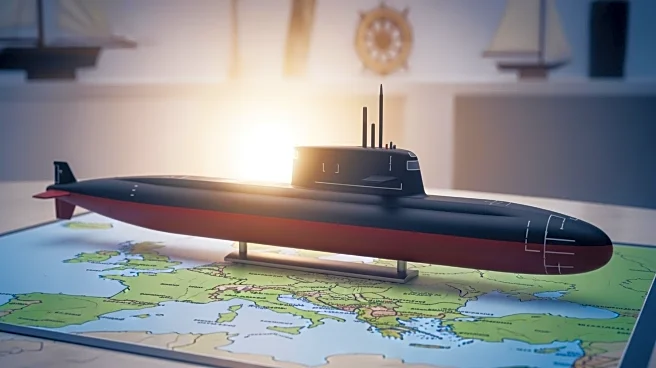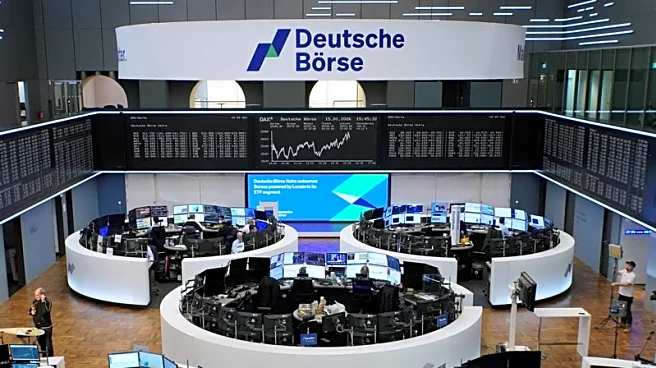What's Happening?
Defence Secretary John Healey has issued a warning to Russian President Vladimir Putin regarding the increased presence of Russian submarines in UK waters. According to Healey, there has been a 30% rise
in Russian vessels threatening UK waters, which he attributes to increased Russian aggression impacting Europe. The Ministry of Defence reports that Russian submarine activity in the North Atlantic has returned to Cold War levels. In response, the RAF and Royal Navy have intensified their surveillance efforts, conducting frequent missions in collaboration with NATO allies. Healey's statement was made during a flight on one of the RAF's new P-8 aircraft, which is equipped with advanced surveillance technology to monitor both surface and underwater activities.
Why It's Important?
The increased Russian submarine activity poses a significant threat to European security, particularly concerning the potential disruption of critical undersea cables. These cables are vital for internet communications, and their severance could lead to widespread chaos and disruption. The heightened surveillance efforts by the UK and its NATO allies underscore the seriousness of the threat and the need for robust defense measures. The collaboration between the UK and Germany, including joint training and equipment purchases, highlights the strengthening of European defense alliances in response to Russian actions. This situation could lead to increased military spending and strategic partnerships among European nations.
What's Next?
Germany plans to frequently conduct maritime patrols from RAF Lossiemouth, further strengthening the defense collaboration with the UK. The purchase of UK-made Sting Ray torpedoes for German P-8 aircraft and joint efforts in cyber-security are expected to enhance the capabilities of both nations in countering Russian threats. The ongoing cooperation between European countries in supplying weapons to Ukraine may also extend to addressing security concerns closer to home. The situation may prompt further investments in defense technology and infrastructure to safeguard against hybrid warfare tactics employed by Russia.
Beyond the Headlines
The increased Russian submarine activity raises concerns about the broader implications of hybrid warfare, including disinformation and cyber-attacks. The threat to undersea infrastructure is part of a larger strategy that includes fake news and other forms of psychological warfare. The deepening defense relationship between the UK and Germany, marked by the Trinity House Agreement, reflects a shift towards more integrated European defense strategies. This development may lead to long-term changes in how European nations approach security and defense, emphasizing collaboration and shared resources.











